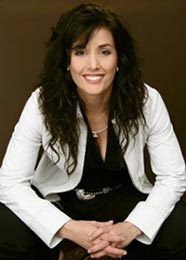Expecting parents might not be aware that stem cells derived from their babies’ umbilical cord blood are a vital resource for their families. Advances in medical science have made it possible to harness the body’s own cells for treatment. Families only have one opportunity to collect and store their babies’ cord blood stem cells, and that’s in the moments following birth. In order to make an informed decision about their options, expectant parents should learn all they can about current therapies and future treatments using cord blood stem cells.
Parents should consider six essential factors when deciding where they’ll store their baby’s cord blood.
Know your options. Ask for input from your family and friends, as well as your doctors, nurses, or midwife. You’ll also learn a lot by doing your own research online.
Understand industry regulations and requirements. Make sure the cord blood bank you’re considering is registered with the U.S. Food and Drug Administration (FDA), is in compliance with all state regulatory requirements, and is accredited by the AABB (formerly known as the American Association of Blood Banks).
Be selective. Transport time is critical for the preservation of newborn stem cells. Ask about collection and processing methods, as well as published rates on cell viability, which will help ensure that the samples are safe from the moment your baby is born until the stem cells are needed.
Ask about clinical trials. Some family cord blood banks offer their clients an opportunity to participate in potentially groundbreaking clinical trials. Without access to their stored cord blood, families wouldn’t have access to the treatments used in these clinical trials. By selecting a family cord blood bank that is a pioneer in medical research, your family could benefit from a greater number of potential treatment options.
Learn about transplant medicine: Sample quality is one of the most important considerations in cord blood transplantation. If a bank has a high volume of cord blood units in storage but has never released a unit for transplant, this should raise a red flag.
Check the bottom line. Find out how long the company has been in business and make sure that it’s financially stable. If the bank goes out of business, it could mean that your family no longer has access to your newborn’s stem cells.
When my patients ask for my recommendation, I suggest banking with Cord Blood Registry® (CBR®), the world’s largest and most experienced newborn stem cell company. CBR is dedicated to advancing the clinical applications of newborn stem cells by partnering with leading research hospitals and universities to establish FDA-regulated clinical trials for conditions that have no cure today, such as acquired hearing loss, autism, cerebral palsy, pediatric stroke, and traumatic brain injury.
Cord Blood Registry is committed to ensuring that all expectant parents have a source of unbiased information so that they can make an informed decision to save, donate, or discard their babies’ stem cells. I encourage families to visit cordbankingbasics.com to learn more.
Reprinted from Babycenter.com
By: Rallie McAllister, MD, MPH, family physician and coauthor of The Mommy MD Guide to Pregnancy and Birth
Rallie McAllister, MD, MPH
 Rallie is a nationally recognized health expert. Her nationally syndicated newspaper column, Your Health, appeared in more than 30 newspapers in the United States and Canada. It was read by over a million people each week.
Rallie is a nationally recognized health expert. Her nationally syndicated newspaper column, Your Health, appeared in more than 30 newspapers in the United States and Canada. It was read by over a million people each week.
Rallie has been the featured medical expert on more than 100 radio and television shows. She’s the former host of Rallie on Health, a weekly regional health magazine on WJHL News Channel 11 with over one million viewers in a five-state area, and No Bones About It, a weekly radio talk show.
Rallie’s healthy-eating tips and interviews have been featured in dozens of popular publications, including USA Today, Women’s Day, Better Homes and Gardens, Redbook, Family Circle, Parenting, Prevention, Men’s Health, Women’s World, Cosmo, Glamour, Health Magazine, Energy Times, Arthritis Today, and dozens of newspapers.
Rallie has authored hundreds of health articles, with millions of additional readers, on dozens of health-related web sites, including WebMD.com, lifetimetv.com, ivillage.com, parentsmagazine.com, msn.com, parentingbookmark.com, familyresources.com, Christianmommies.com, womenof.com, and babycenter.com.

Leave a reply
You must be logged in to post a comment.